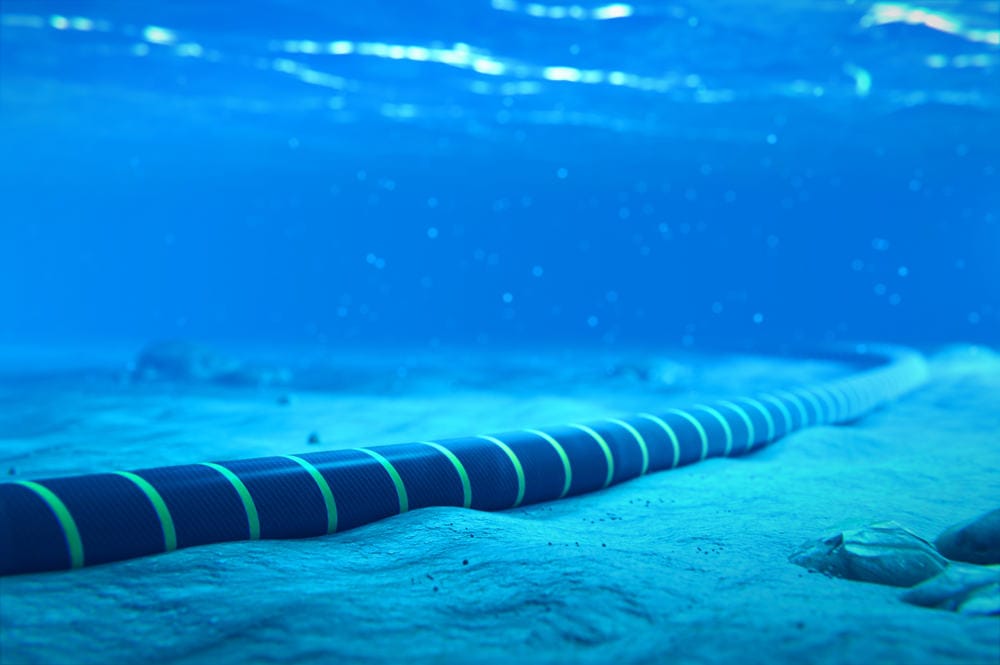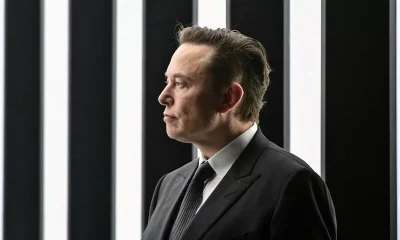Business
Safaricom To Build Its Own Subsea Cable To Counter Starlink’s Growing Competition
Currently, Safaricom relies on third parties for connections to the undersea cables.

Safaricom is planning to build its own subsea cable to compete with Elon Musk’s Starlink.
This move comes as Safaricom seeks to enhance its internet services and maintain its market lead amid growing competition.
The subsea cable will provide high-speed internet and improve connectivity, reducing reliance on third-party providers.
These cables are the backbone of the global internet, carrying the bulk of international communications, including email, webpages and video calls Safaricom is seeking more bandwidth as it expands in the fast-growing data segment in the face of slower growth from the voice business.
According to reports, Safaricom is seeking approval from the Communications Authority of Kenya (CA) to build its own undersea cable as part of its strategy to expand and improve internet connectivity in the region.
Starlink has become an enormous competitor to Safaricom in the Kenyan market. Starlink, owned by Elon Musk, uses low-earth orbit satellites to deliver high-speed internet, making it an appealing solution for areas with limited access to traditional broadband infrastructure. Its ability to reach remote and underserved regions has created a niche market.
Currently, Safaricom relies on third parties for connections to the undersea cables.
This includes privately owned SEACOM and Telkom Kenya, which operates and maintains five of the six submarine cables that have landed in the country.
The five include the East African Marine Cable (TEAMS) cable, which is owned 32 percent by Safaricom, Telkom Kenya, 23 percent and the Kenyan government, 20 percent. It links Kenya to the outside world through the United Arab Emirates.
Others are EASSy, Lion 2, DARE 1 and PEACE subsea cable systems that are under Telkom Kenya.
Safaricom’s agreement with SEACOM is set to end in June 2028.
Analysts reckon that Safaricom is racing to diversify its sources of high-speed internet and cut reliance on Telkom Kenya in its quest for more bandwidth.
Starlink, which is riding on the back of one of the world’s richest persons with a net worth of $237 billion (Sh30.6 trillion), is betting on lowering internet costs in a segment dominated by Safaricom, Jamii Telecommunications Limited (JTL) and Zuku.
It has unsettled local telecoms players, with Safaricom, Airtel Kenya and Jamii Telecom having sent protest letters to the CA. The antitrust authority—Competition Authority of Kenya (CAK)—has also been dragged in court over Starlink’s operation.
The number of Kenyans using satellite internet has increased since Starlink entered the Kenyan market in July 2023.
Kenya Insights allows guest blogging, if you want to be published on Kenya’s most authoritative and accurate blog, have an expose, news TIPS, story angles, human interest stories, drop us an email on [email protected] or via Telegram
-

 News2 weeks ago
News2 weeks agoTHE FIRM IN THE DOCK: How Kaplan and Stratton Became the Most Scrutinised Law Firm in Kenya
-

 Economy2 weeks ago
Economy2 weeks agoIran Demands Arrest, Prosecution Of Kenya’s Cup of Joe Director Director Over Sh2.6 Billion Tea Fraud
-

 Grapevine1 week ago
Grapevine1 week agoA UN Director Based in Nairobi Was Deep in an Intimate Friendship With Epstein — He Even Sent Her a Sex Toy
-

 Business2 weeks ago
Business2 weeks agoKPC IPO Set To Flop Ahead Of Deadline, Here’s The Experts’ Take
-

 Politics2 weeks ago
Politics2 weeks agoPresident Ruto and Uhuru Reportedly Gets In A Heated Argument In A Closed-Door Meeting With Ethiopian PM Abiy Ahmed
-

 Investigations1 week ago
Investigations1 week agoHow Mexico Drug Lord’s Girlfriend Gave Him Away
-

 Business2 weeks ago
Business2 weeks agoSafaricom Faces Avalanche of Lawsuits Over Data Privacy as Acquitted Student Demands Sh200mn Compensation in 48 Hours
-

 Investigations2 weeks ago
Investigations2 weeks agoKenya’s DCI Opens Probe on Russian Man Who Secretly Filmed Sex Escapades With Women — But There’s a Slim Chance They’ll Ever Get Him





























